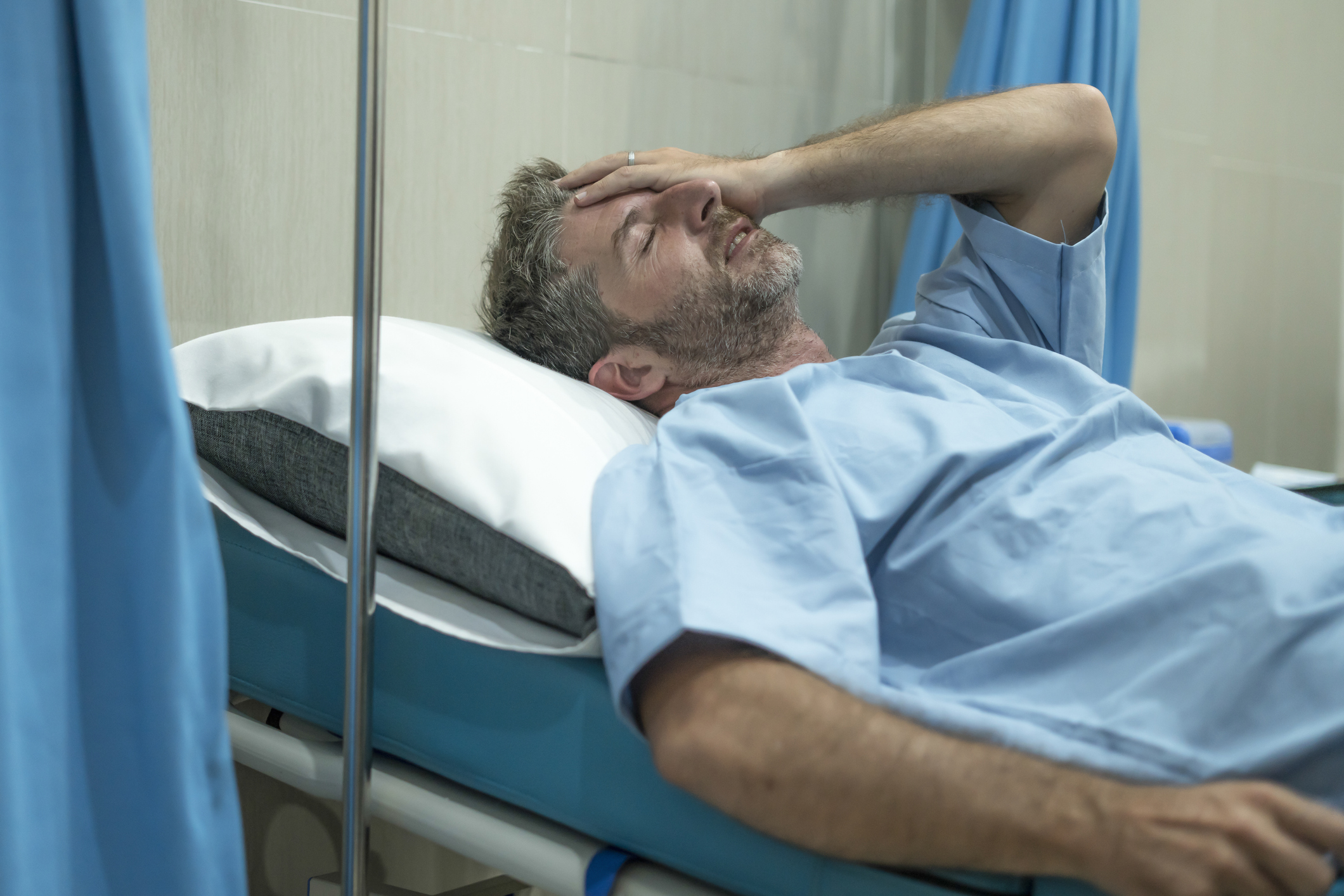Get Easy Health Digest™ in your inbox and don’t miss a thing when you subscribe today. Plus, get the free bonus report, Mother Nature’s Tips, Tricks and Remedies for Cholesterol, Blood Pressure & Blood Sugar as my way of saying welcome to the community!
Why a hospital stay could increase risk for Alzheimer’s and Parkinson’s

Maybe you simply woke up just not feeling like yourself.
Then as the day rolled on, things got worse.
Now you have a fever, possibly a cough and you can no longer deny the fact that you are sick.
Some people would see their doctor at this point. Others may wait to the point that a hospital stay is necessary. And still others, depending on existing health problems may end up hospitalized even sooner.
Of course, no one plans to get sick enough from infection to be hospitalized. But now there’s all the more reason to plan as much as possible to avoid landing in the hospital in the first place…
One infection’s bad. Multiple infections are worse — for your brain
According to research performed by a team of researchers at the Karolinska Institute in Sweden, suffering from an infection in early to midlife that requires hospital care is associated with an increased risk of developing Alzheimer’s and Parkinson’s disease later in life.
And where one infection raises your risk, multiple infections during that time of your life send it spiraling higher and higher.
To make that determination, the researchers compiled an incredible amount of data from people diagnosed with three types of neurodegenerative disease over a 46-year period. They looked at Alzheimer’s, Parkinson’s and amyotrophic lateral sclerosis (ALS).
All in all, the researchers delved into the health records of over 406,000 people.
And what they found is that infection plays a role in the development of two of those diseases — Alzheimer’s and Parkinson’s — but not ALS.
After combing through all of the data, their research showed that:
- Being treated in a hospital for an infection five or more years before diagnosis was associated with a 16% higher risk of Alzheimer’s and a 4% higher risk of Parkinson’s, whether the infection was caused by a bacteria or virus.
- The highest risk of disease was experienced by people who had suffered through multiple hospital-treated infections before the age of 40, with more than double the risk of Alzheimer’s and more than 40% increase in the risk of Parkinson’s.
Yes, you read that right…
Multiple infections make you twice as likely to end up with Alzheimer’s as someone who didn’t require treatment in a hospital and puts you at significantly higher risk of Parkinson’s.
To make matters worse, you may end up with the diseases far earlier in your life than you would expect.
“These findings suggest that infectious events may be a trigger or amplifier of a pre-existing disease process, leading to clinical onset of neurodegenerative disease at a relatively early age,” the researchers say.
“Hospital-treated infections, especially in early- and mid-life, were associated with an increased risk of Alzheimer’s disease (AD) and Parkinson’s disease (PD), primarily among AD and PD cases diagnosed before 60 years,” adds lead researcher, Jiangwei Sun.
Keeping your brain healthy post-infection
If you’ve suffered an infection and had to be hospitalized, that research might sound scary.
But it might be better to look at it as a call to action to start taking steps to care for your brain right away to hopefully avoid becoming one of those statistics.
Luckily, we’ve already learned quite a bit about what habits can keep our brains on the right track — and reduce our risks of getting an infection.
First, to reduce your risk of both Alzheimer’s and Parkinson’s, getting regular physical activity is vital.
This includes walking, which helps develop the brain’s plasticity, or ability to repair itself, as well as yoga and tai-chi, which have even been found to reverse memory loss.
Exercise also boosts an important Alzheimer’s fighting hormone in your brain.
But don’t forget about the vitamin that could not only help shore up your immune system to help your body better fight off an infection — without hospitalization — but also acts as dementia repellant.
One of the easiest ways to boost your immune health is with vitamin D. The sunshine vitamin stimulates the body’s immune cells to help it fight off pathogens. And recent research shows vitamin D3 provides five times the biological activity of plain old D2. Not to mention that mounting research ties vitamin D deficiency with dementia.
And don’t forget the common-sense lifestyle habits that can make you less susceptible to infection…
Get plenty of sleep, drink alcohol only in moderation, limit stress and eat a well-balanced diet with little to no ultra-processed foods.
That last one is very important for seniors who suffer often from micronutrient malnutrition — which goes back to vitamins and minerals that may need to be supplemented if your diet is just not that good.
Editor’s note: Did you know that when you take your body from acid to alkaline you can boost your energy, lose weight, soothe digestion, avoid illness and achieve wellness? Click here to discover The Alkaline Secret to Ultimate Vitality and revive your life today!
Sources:
Repeated Infections Associated With Increased Risk of Some Neurodegenerative Diseases – NeuroscienceNews.com
How To Prevent Parkinson’s Dementia – Parkinson’s Daily













